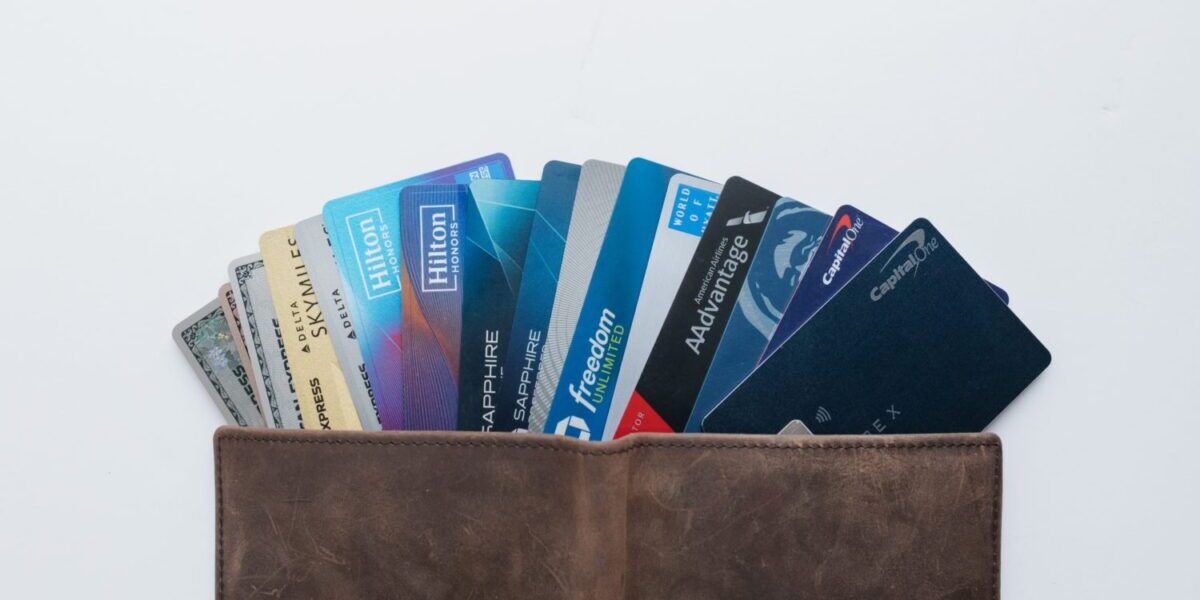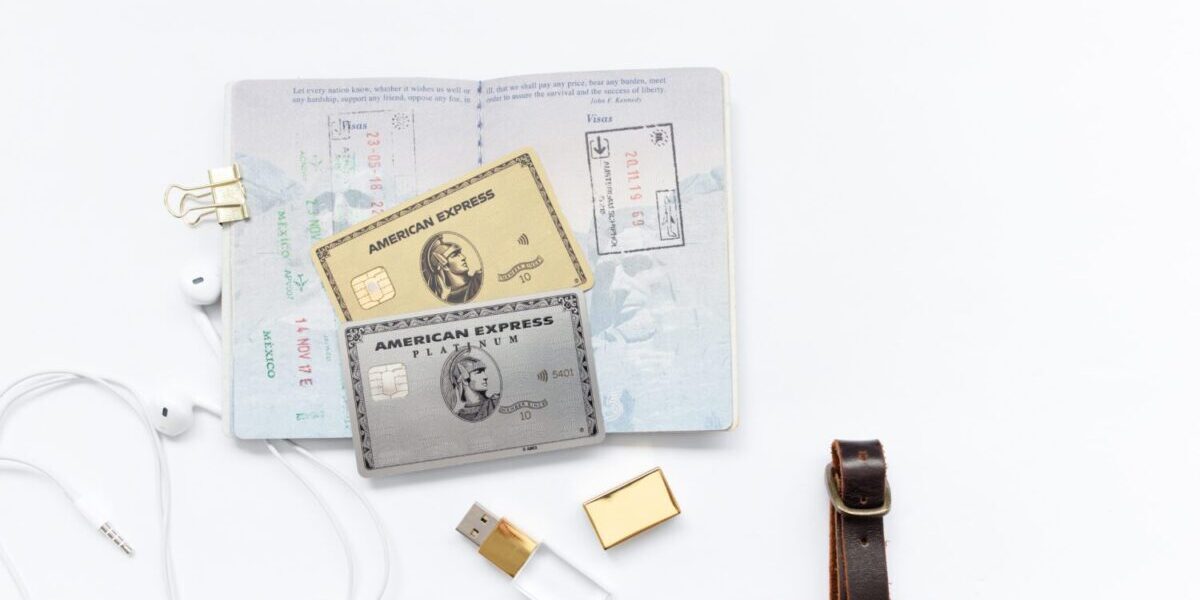When it comes to adding a new travel rewards credit card to your wallet, there's no shortage of options to choose from. And with the banks going all in on premium travel cards … it's more confusing than ever.
Plenty of travel influencers and websites – us included, to a certain extent – are quick to tout one card or another as the “best travel card” on the market. But just because one card might subjectively be the best one, doesn't mean it's objectively the right one.
With constantly changing benefits and welcome bonus offers, we know how difficult it can be to pick the one. There's simply no one-size-fits-all solution – and that's a big reason why we created Card Pilot to help travelers make the right choice for their individual needs. By taking into account other cards currently in your wallet, differing annual fees, personal travel goals and spending patterns, we're dead-set on helping you pick the best card … for you!
Prefer to do it on your own? There's no shame in that! But if you're having trouble figuring it all out, here are some questions to ask yourself when sifting through all your options.
See all of the best credit card offers available this month!
What Kind of Annual Fee Are You Comfortable Paying?
Let's start here. With annual fees pushing closer and closer to the $1,000 per year mark, travel rewards credit cards can get expensive … in a hurry!
When it comes to paying that annual fee year after year, the key is to do the math and determine if what you're getting in return is worth it. If the numbers for a particular card don't add up, then it's probably not the right one for you – no matter how great it is for someone else.
Let's take a look at some of the best options at different price points.
No Annual Fee
If you're new to points and miles, the thought of paying money for a credit card might be an immediate non-starter – trust us, we've been there. In that case, let's look at some of the best no-annual-fee options on the market.
The Bilt Mastercard® burst onto the scene as a no-brainer option for renters, allowing them to earn valuable points and miles on their monthly rent payments, without paying any added transaction fees. But even though the Bilt Card is marketed towards renters, its appeal stretches far beyond that.
With top-tier airline and hotel transfer partners, an impressive list of travel benefits, useful category spending bonuses … and most importantly, no annual fee, a case could be made for the Bilt Card to be one of the best travel rewards credit cards, period.
All information about the Bilt Mastercard® has been collected independently by Thrifty Traveler and has not been reviewed by the issuer.
Learn more about the Bilt Mastercard® (for full disclosure, this is a personal referral link).
Keep it Reasonable
If you're comfortable with a modest annual fee, most of the big banks offer a travel rewards card for just under $100 per year. At this price point, you'll typically get added benefits like increased point-earning in certain bonus categories, added travel protections, and maybe even a travel credit or two.
The *csp* is one of the strongest options on the market. For $95 per year, you'll earn 3x points per dollar spent on dining, online grocery purchases (excluding Target, Walmart, and wholesale clubs like Costco and Sam's Club), and select streaming services. You'll also earn 2x points per dollar spent in a wide-ranging travel category that covers everything from airfare to cruises, hotels to rental cars, and more. All other eligible purchases earn 1x points per dollar spent.
You'll also get some of the best travel protections of any card on the market and an annual $50 statement credit for hotels booked through Chase Travel℠, making this a great entry- or intermediate-level travel card for many.
Learn more about the *csp*
The *capital one venture card* is another strong option for under $100 per year in annual fees. At $95 per year, this is one of the cheapest cards on the market for covering the cost of TSA PreCheck® or Global Entry enrollment.
Beyond that, you won't find an easier introduction to using points and miles for free(ish) travel than the Venture Rewards Card. Whether you prefer to cover nearly any travel purchase at a rate of 1 cent per mile or transfer them to one of Capital One's outstanding travel partners for potentially greater value, you've got lots of options at your disposal.
And since the card earns unlimited 2x miles on every purchase, it's easy to rack them up in a hurry.
Learn more about the *capital one venture card*
Best Bang for Your Buck
Climbing the annual-fee-ladder higher, you'll find a handful of cards in the $250 to $400 range. At this price point you can expect even more travel (and lifestyle) statement credits and maybe even perks like airport lounge access.
If you ask us, one card reigns supreme in this category: The *capital one venture x* is a souped-up version of the ever-popular Venture Rewards Card, earning unlimited 2x miles everywhere. At $395 per year it's not exactly cheap, but in practice, most travelers will pay far less than that … and some, may even come out ahead.
For starters, you'll get an annual $300 Capital One Travel credit to use on flights, hotels, rental cars, and vacation rentals – and then, starting in year two, you get a 10,000-mile anniversary bonus (worth a minimum of $100). If you're the kind of person who plans to spend $400 a year (or more) on travel, you’ll see your real out-of-pocket cost isn't much, if anything, at all.
It also comes chock full of “premium” travel benefits like access to Capital One Lounges and participating Priority Pass lounges – just keep in mind, access rules are changing next year – as well as automatic Hertz President's Circle elite status. Add in a credit to cover Global Entry or TSA PreCheck and great travel and rental car protections, and it's easy to make a case for this card being the right one for most travelers.
Learn more about the *capital one venture x*
Money Is No Object
Finally, if annual fees aren't a concern, there's a whole other tier of cards at your disposal. These cards typically cost north of $500 per year (sometimes, nearly double that), but come packed with even more travel perks and benefits.
The most expensive, and arguably the best of all, is the *amex platinum*. With a annual_fees annual fee (see rates & fees), this card certainly won't be for everyone. But after a recent refresh, it comes packed full of even more offsetting statement credits that can help recoup all of that … and then some.
Between unrivaled lounge access, instant hotel status, and over $2,000 in travel and lifestyle credits each year, this card has one of the best sets of perks in the travel rewards world.
Learn more about *amex platinum*.
Where Do You Spend the Most?
If you haven't been able to narrow things down based on annual fees alone, it might be time to take a look at where you're spending most. Several travel cards award bonus points for spending in common categories like dining, supermarkets, and gas stations. If you typically spend big in one of these categories, there may be a best card for you.
For example, if you've got a big food budget – whether that's dining out or cooking at home – the *amex gold card* could be just the best card for you. That's because it earns a best-in-class 4x points for every dollar spent at U.S. supermarkets (up to $25,000 annually, then 1x) and 4x points per dollar spent at restaurants worldwide (up to $50,000 annually, then 1x).
You'll also get up to $120 in dining credits each year (up to $10 per month) to spend at Grubhub, The Cheesecake Factory, Goldbelly, Wine.com, and Five Guys, up to $84 in Dunkin' Credit each year (up to $7 per month) and up to $100 in Resy Credit per year (up to $50 semi-annually). Oh … that's not all: You also get $120 annually in Uber Cash ($10 per month), which can be used for Uber Eats. See what I mean about this card being a good option for foodies?
Plus, you can currently earn a big welcome offer: bonus_miles_full
All those bonus points and statement credits can go a long way toward offsetting the card's annual_fees annual fee (see rates & fees).
Learn more about the *amex gold*
If you don't regularly spend big in any one particular category, you'd likely be best off with a card that earns 2x points or miles everywhere like the *capital one venture card* or the *capital one venture x*.
Additionally, the *chase freedom unlimited* is a solid option for someone that spends in a wide range of categories, but doesn't want to pay an annual fee. This card earns a minimum of 1.5% cash back on all purchases and gets an even better 3% cash back when spending on dining and at drugstores.
Learn more about the *chase freedom unlimited*
What are Your Travel Goals?
This might be one of the most important questions to ask yourself.
Some people have their sights set on Europe, while others are looking to travel to Asia. Some have no intention of leaving the country at all – and that's perfectly fine! The point is, where you see yourself traveling most could impact which card is right for you.
For example, if you plan to do all your travel domestically, without leaving the United States, finding a card that waives foreign transaction fees is probably pretty low on your list of priorities. In this case, you might assign more weight to a card's bonus categories or its list of travel partners.
Choosing a card like the *csp* that earns Chase Ultimate Rewards points which can be transferred to multiple domestic airline and hotel partners could be the right move in that case.
Meanwhile, if you plan to give your passport a workout and specifically have your sights set on flying in the pointy end of the plane, having a card that comes with a big welcome offer bonus might be most helpful.
In that case looking to a card like the *capital one venture x*, where you can bonus_miles_full would be a good idea. Those miles can go be transferred to a slew of partners like Virgin Atlantic, British Airways, and Air Canada Aeroplan to fly business class to Europe on the cheap.
Finally, if you're a road-warrior spending countless nights per month away from home – or maybe a parent that's gone every weekend for kids' sporting events – a co-branded hotel credit card could be just the ticket for you. Each of the major hotel chains like Hilton, Marriott, and IHG offer a wide portfolio of co-branded cards ranging from no-annual-fee versions all the way up to top-tier (and high-priced) premium cards that come with added perks like elite status and annual free night certificates.
No matter your travel goals, taking a look at where you're headed can help you decide which type of travel rewards credit card is right for you.
Bottom Line
When choosing the best travel rewards credit card, there is no one-size-fits-all answer – it's all about finding the right card for you. Asking yourself some honest questions like how much you're comfortable paying in annual fees, what your travel goals are, and where you spend most will help determine which card is best … for you.
And when all else fails, use a tool like Card Pilot to help guide you in the right direction!








